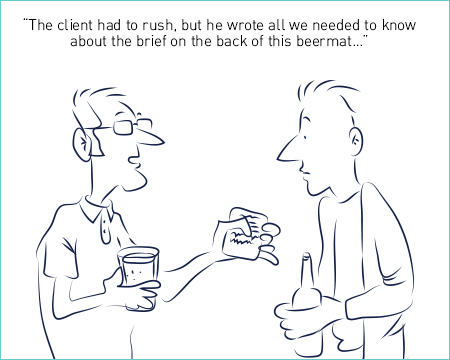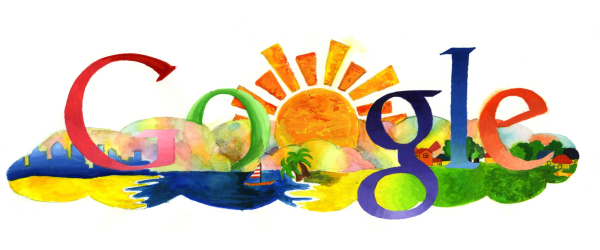How do you go about briefing your marketing agency? Are you committing some deadly briefing sins? Improve your briefs with George Foster, who, as Founder and Creative Director of Integrated Design and Marketing Agency, Gravitas spills the beans.
People often ask me how to brief a design or marketing agency.
For a start, it's none of the following:
"Can you bash something out?"
"You know the sort of stuff we like - just do more of the same"
"We're not sure what we want, but we'll know when we see it"
or:
"We have this presentation on Tuesday and it really needs some of your input, yes we know it's Friday, but it's only a couple of days work and we'll have the stuff for you by the end of the day, promise..."
Yep, weekends shouldn't be a barrier to producing work.
OK, well I jest (a bit), but we have all been there before and we'll all go there again.
Treat them like part of your team
So let's say you have a fab agency relationship and they do the most amazing stuff - sometimes in timescales you wouldn't believe possible - and they keep on delivering despite the deadlines and budgets you throw at them. But when you consider what you ask of your agency, do you ever wonder how and why they manage to do it, time after time?
Well, the simple (and possibly cynical) answer is of course that we all know it's a service industry and these days, everyone over-delivers. You simply have to. If it was ever as portrayed on Mad Men where an agency could as easily fire a client, as a client could do the reverse, it isn't like that now.
But because we are all damned good at what we do, and get a kick out of it still, we love the challenges. And a good agency will always rise to a challenge.

Be realistic
Of course, you - the client - can make that challenge less challenging.
You'll know that we don't just turn on a creative tap or open a drawer in our desks and there's all that creative stuff just waiting to be knocked into shape.
We aren't blessed with ESP either.
We do, however, like to hear what you have to say first. What you want to achieve with a particular piece of work, who you are trying to target, what the tone of voice should be. It's only what you'll have been talking about to the rest of your company, so it just needs distilling down to what the agency needs to know to achieve the required results.
A written brief doesn't have to be massively long, but should contain some salient facts that will make sure your agency doesn't waste their time - and yours!
Useful, but not essential, are some pointers that you can add to the brief.
It might be a particular site or campaign (a competitor's even) that you think tells a strong message. Let the agency see that and tell them why you think it works well. Of course, it can be the opposite - an example where the competition are being 'me too' and where you think those clichés are to be avoided. Sometimes the best way is to start by showing what you don't want.
These are all fairly standard things of course. But also, don't forget that there are other snippets that you can use to help make sure the brief is as clear and concise as possible.
A set of company style guides, logo positioning and usage, approved fonts and colours is a must. Any mandatory templates that must be adhered to. Copy and tone of voice guidelines.
But what else that you might not have thought of?
Let's say you are looking for a particular 'retro' style for the work you want to brief. You can do a little research yourself - Google is stuffed to the gills with images - and then collate those results in a Pinterest board so that everyone can agree the sort of look you are after. For particular colour combinations, this is a real time saver as the creatives can then sample these directly and you know you have the exact colour swatches you wanted. In the end, we're all human, and a little bit of forethought goes a long way.
The best clients (and the ones that get the most out of an agency relationship) are those that treat the agency as an extension to their company, rather than just 'suppliers'.
Of course, it's like any relationship. You are never going to agree all the time, but as long as you can see everyone's point of view you are all gaining that trust you need. Once you have that, it makes life so much easier. And you know what? Agencies like working with people they like just as much as you do.
So, chat to your agency and let them get to know you - get some two way communication going and then everyone gets a buzz out of getting it right, quickly, painlessly and with the minimum of fuss.
And that pint down the pub afterwards tastes all the better for it.







